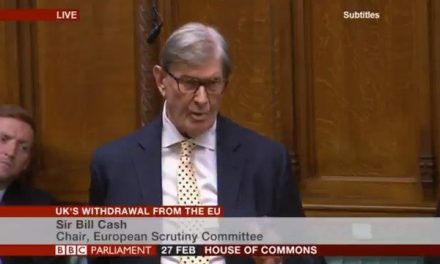Every time there is a problem Brussels answers with further integration. On the aftermath of the eruption of Iceland's Eyjafjallajokull volcano, the Commission took the opportunity to call for a harmonized approach to the EU's skies. According to the European Commission transport spokesperson, Helen Kearns, "There is simply not enough Europe here.”
Presently, each EU member state is responsible for its own airspace and the flight routes are determined by national authorities. Brussels has the ambition of a 'Single European Sky' for a long time. Once the land borders have been eliminated, the logical step for Brussels was to eliminate the sky borders too. Obviously, Member States have been reluctant in handing over sovereignty over their airspace. In 2004, Brussels adopted several regulations aimed at creating a 'Single European Sky' and reforming the current air traffic management system. However, as such regulations had not delivered the results expected by the Commission, a second package of legislation was adopted last year. The new regulations foreseen the creation of “functional airspace blocks” (FABs), through which two or more member states may agree to integrate their upper airspace and appoint a single service provider to control air traffic in that block. The plan is to reorganise the 27 national airspaces in nine European FABs by June 2012.
The main aim of the Single European Sky package II is to redesign the European sky according to traffic flows rather than national borders. Hence, it would put in place a single European system for air traffic and it would create a European network manager. The implementation of the Single European Sky II was due to come into force in 2012. However, the European Commission has used the momentum of the travel chaos caused by the Icelandic ash cloud to “fast-track” the Single Sky project. The European Commission has stated that “The current crisis showed, if any proof were needed, the crucial importance of a better integration of the EU airspace through the Single European Sky (SES) initiative”, hence “the acceleration of its implementation should be given the highest political priority.” The Commission has proposed “concrete actions” to be taken as soon as possible in order to accelerate the full implementation of the SES. Unsurprisingly, Brussels is using another crisis to grab more power.
On 4 May, at an extraordinary meeting, the EU´s transport ministers agreed “on the importance of giving the highest priority to the acceleration and anticipation of the
full implementation of the Single European Sky.” According to the EuropeanVoice, José Blanco Lopéz, Spain's minister of public works, has said that due to the ash cloud “We have made more progress in two weeks than we have in years,” towards more EU coordination, meaning harmonising rules on air-traffic.
The Transport Council called upon “the European Institutions and the Member States to take urgently the appropriate decisions on a series of measures identified by the Commission.”
The European Commission got, therefore, the member states approval to put in place the necessary measures too accelerate the full implementation of the SES, in the coming weeks:
– The immediate creation of a crisis coordination cell, whereby Eurocontrol, EASA, Member States and the air transport stakeholders would take, coordinated decisions in the case of a sudden crisis in air traffic;
– The Functional Airspace Blocks coordinator should be appointed as soon as possible;
– Implementation without delay of the Functional Airspace Blocks by Member States.
In 2008 Ireland has created, with Britain, the first "functional airspace bloc" to coordinate air traffic. Another block is expected to be formed by France, Germany, Belgium, Luxembourg and the Netherlands;
– The European network manager should be appointed before the end of 2010. This is a “crucial” point for the Commission as it believes if it “had been designated prior to the crisis, the situation would have been quite different.” The European network manager will organise flight routes, co-ordinate national air-traffic control services. It will co-ordinate decisions among national air traffic managers. It seems European network manager would have the power to issue biding recommendations to the member states´ air controllers. According to the EUobserver, a European Commission official has said that “the power to issue binding recommendations would not impinge on member states' sovereignty over their airspace as the advice could be ignored. But a fine could be issued if it is then proven that ignoring the recommendation led to adverse consequences.” Siim Kallas has said "It was never supposed to be a super-national authority, but a co-ordination mechanism. The final decision will still rest in the hands of member states." Nevertheless, it seems that the new EU authority would have the power to override member states' control over their airspace.
– the performance scheme aiming at setting binding targets on Member States in areas of safety, environment, airspace capacity and cost efficiency, should be implemented before summer 2010.

